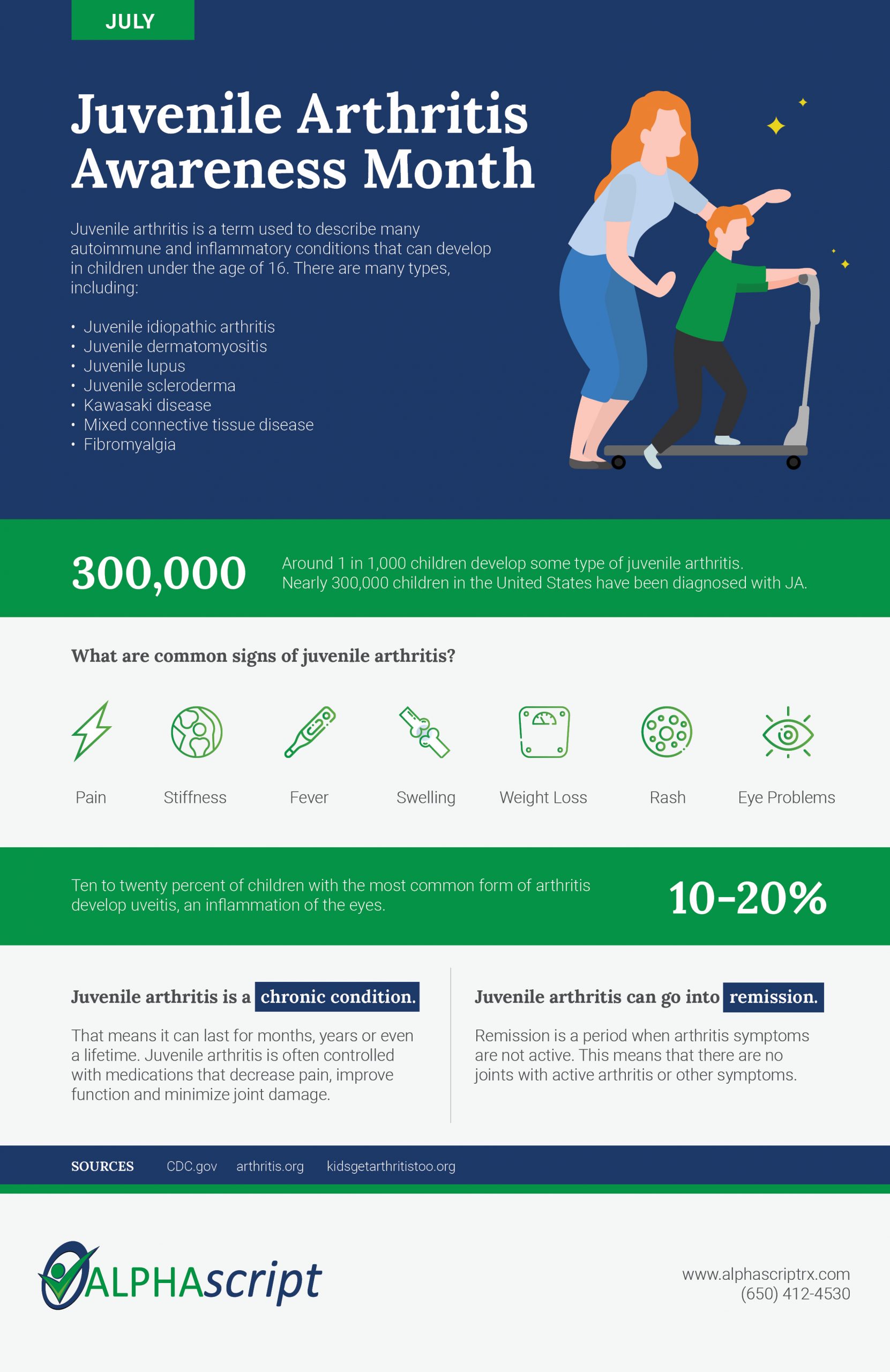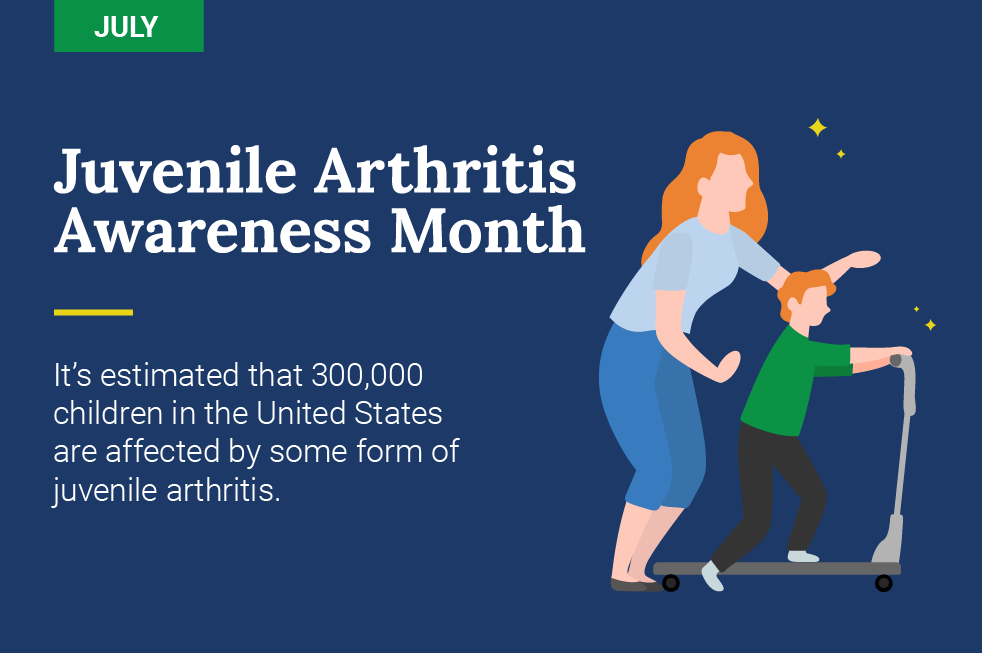Nearly 300,000 kids and teens in the United States are affected by juvenile arthritis (JA). JA is a term used to describe many autoimmune and inflammatory conditions that can develop in children under the age of 16.
Types of JA
Most types of JA are autoimmune or inflammatory diseases. The most common types of JA are:
- Juvenile idiopathic arthritis
- Juvenile dermatomyositis
- Juvenile lupus
- Juvenile scleroderma
- Kawasaki disease
- Fibromyalgia
JA Symptoms
Common symptoms of JA include joint pain and swelling, fever, stiffness, rash, fatigue, loss of appetite, eye inflammation and difficulty with activities like walking, dressing or playing.
Symptoms of JA can come and go over time. There can be times when symptoms get worse, known as flares, and times when they get better, known as remission.
JA Treatment
While there is no cure for childhood arthritis, it is treatable, and most children with JA can lead normal lives. Treatment can in some cases lead to permanent remission, which means the disease is no longer active.
Some goals of JA treatment include: stopping or slowing down disease progression and inflammation, relieving symptoms, preventing joint or organ damage and improving quality of life.
Alphascript offers personalized service and compassionate care for children with JA and their caregivers. Read more about our rheumatology services.



Recent Comments